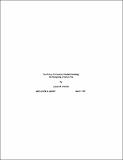| dc.contributor.author | Poterba, James M. | en_US |
| dc.date.accessioned | 2009-12-15T23:55:03Z | |
| dc.date.available | 2009-12-15T23:55:03Z | |
| dc.date.issued | 1991 | en_US |
| dc.identifier | 91-003 | en_US |
| dc.identifier.uri | http://hdl.handle.net/1721.1/50159 | |
| dc.description.abstract | This paper develops several points concerning the design and implementation of a carbon tax. First, if implemented without any offsetting changes in transfer programs, the carbon tax would be regressive. This regressivity could be offset with changes in either the direct tax system or transfers. Second, the production and consumption distortions associated with small carbon taxes, on the order of $5/ton of carbon, are relatively small: less than $1 billion per year for the United States. Stabilizing carbon dioxide emissions at their 1988 levels for the year 2000, however, would require a carbon tax ten to twenty times this size. It would more than triple the producer price of coal and nearly double the producer prices of petroleum and natural gas, would have much more significant private efficiency effects. Third, a central issue of carbon tax design is harmonization with other fiscal instruments designed to reduce greenhouse warming. Ensuring comparability between taxes rates on chlorofluorocarbons and fossil fuels is particularly important to avoid unnecessary distortions in production or consumption decisions. | en_US |
| dc.description.sponsorship | Supported by the Istituto san Paolo di Torino, the NSF, the MIT Center for Energy Policy Research and the John M. Olin Foundation. | en_US |
| dc.format.extent | 40 p | en_US |
| dc.publisher | MIT Center for Energy and Environmental Policy Research | en_US |
| dc.relation.ispartofseries | Working paper (Massachusetts Institute of Technology. Center for Energy Policy Research) ; MIT-CEPR 91-003. | en_US |
| dc.title | Tax policy to combat global warming : on designing a carbon tax | en_US |
| dc.type | Working Paper | en_US |
| dc.identifier.oclc | 28596145 | en_US |
